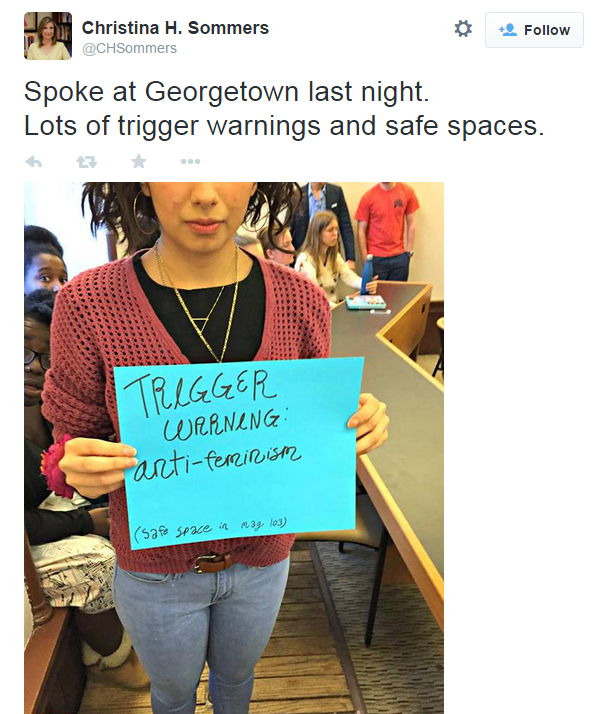Colleges Micromanaging Free Speech

Back in the day, when bosses and CEOs got a little too attentive to detail, we would wryly note that they were “micromanaging.” Today, students actually want university administrators to micromanage free speech, putting the First Amendment at risk.
“Two terms have risen quickly from obscurity into common campus parlance,” Greg Lukianoff and Jonathan Haidt write in the latest issue of The Atlantic. “Microaggressions are small actions or word choices that seem on their face to have no malicious intent but that are thought of as a kind of violence nonetheless. For example, by some campus guidelines, it is a microaggression to ask an Asian American or Latino American ‘Where were you born?,’ because this implies that he or she is not a real American. Trigger warnings are alerts that professors are expected to issue if something in a course might cause a strong emotional response. For example, some students have called for warnings that Chinua Achebe’s Things Fall Apart describes racial violence and that F. Scott Fitzgerald’s The Great Gatsby portrays misogyny and physical abuse, so that students who have been previously victimized by racism or domestic violence can choose to avoid these works, which they believe might ‘trigger’ a recurrence of past trauma.”
Lukianoff is the president of the Foundation for Individual Rights in Education. Haidt is a psychologist at NYU.
“Some recent campus actions border on the surreal,” Lukianoff and Haidt point out. “In April, at Brandeis University, the Asian American student association sought to raise awareness of microaggressions against Asians through an installation on the steps of an academic hall. The installation gave examples of microaggressions such as ‘Aren’t you supposed to be good at math?’ and ‘I’m colorblind! I don’t see race.’ But a backlash arose among other Asian American students, who felt that the display itself was a microaggression. The association removed the installation, and its president wrote an e-mail to the entire student body apologizing to anyone who was ‘triggered or hurt by the content of the microaggressions.’”




